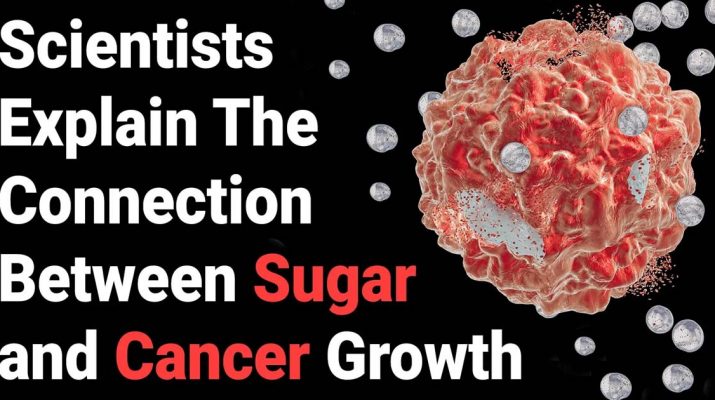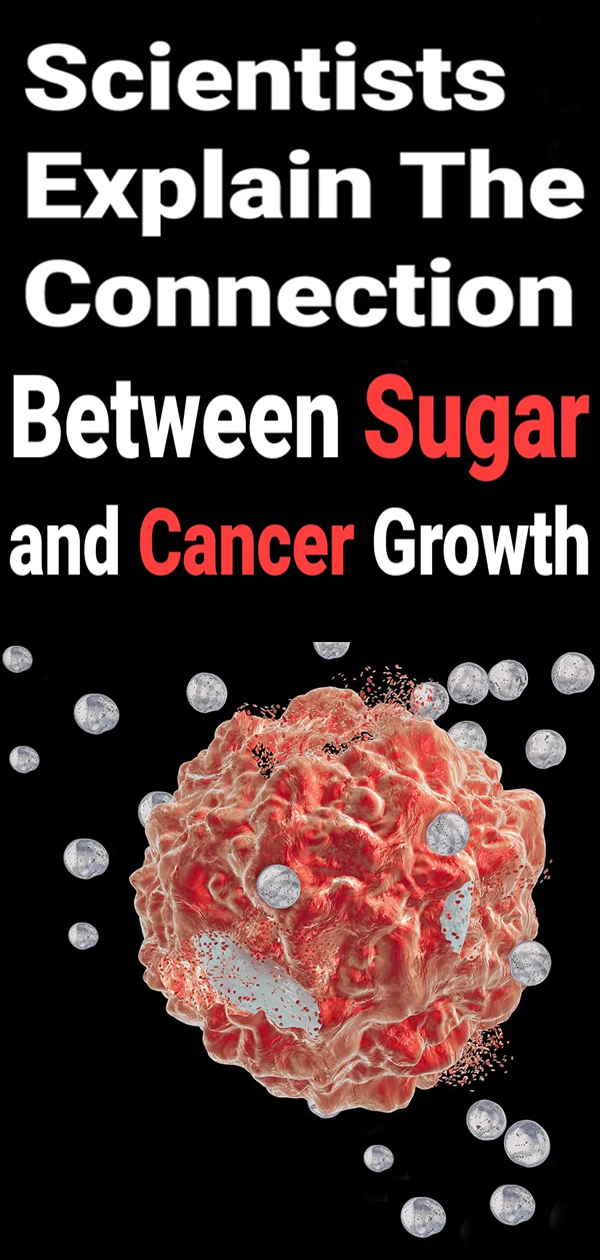People who are health conscious and positive thinking likely do not consume sugar to excess. Unfortunately, even small amounts of those sneaky sugar molecules can be connected to cancer growth in our bodies.
With an eye on prevention, scientists are discovering more about how and why sugar affects cancer cell growth and what we can do to distance ourselves even further from sugar’s unhealthy effects.
Sugar is a carbohydrate molecule, often associated with sweet treats, but it can be found in natural fruits as well. Our bodies use carbohydrates as fuel, and sugar can be a complex or simple carbohydrate molecule. Complex carbohydrates exist in starches like pasta and potatoes.
They are basically a bunch of sugar molecules strung together. The difference is that whereas complex carbohydrate foods contain healthy fiber, vitamins, and minerals, simple carbohydrates like white sugar and high fructose corn syrup have none of those nutritional benefits.
Do we need sugar to survive? Not exactly. As long as we have carbohydrates in our diet, we can avoid sugar. However, with the wide variety of foods containing naturally occurring sugars, like lactose and fructose for example, we would eliminate a lot of tasty and nutritional items by avoiding all dietary sugars.
Sugar Is An Acidic Molecule
Acidity is a happy place for cancer and disease in the body, so no wonder an acidic molecule like sugar is connected to cancer growth. The more sugar we consume, the more acidic our bodies are. The more acidic our bodies are, the more likely disease will spread because it is being kept in its favorite climate. It’s like any existing cancer cells in your body get to go on an all-inclusive vacation at the beach in Fiji and multiply like bunnies whenever you have lots of sugar in your diet.
Dr. Otto Warburg first associated cancer with an acidic environment back in 1931, and he won a Nobel prize in Physiology or Medicine for his research. The causality of his discovery has been debated and researched ever since. Needless to say, avoiding sugar and its acidity is beneficial for our bodies, period. If cancer hates alkalinity, so much the better if we decrease acidic sugar in our diet.
Feeding The Cancer Cell
As a positive person, you likely eat healthy, vegan, and nutritionally packed food to provide you with the sustenance you need for your day. But what if your meal was accidentally feeding cancerous growth inside your body? Scientists explain that your balance of carbohydrates from sugars, both natural and added, might need to be changed.
Sugar, as a carbohydrate, breaks down for use as fuel for your cells. However, it also feeds cancer cells. Fat tissue stores excess sugar. Clearly, we don’t want to store food for cancer cells that want to grow and multiply. We want to eliminate any sugars stores in the fats of our bodies so that disease and cancer do not get an all-they-can-eat buffet.
Sugar Stimulates Cancer Growth
The fermentation of sugar does not require oxygen, which is ideal for cancer cells. It helps them reproduce and multiply faster than if they did not have sugar. The scientists studying sugar’s effect on cancer growth found that sugar, just like in human children, causes hyperactivity for the reproduction and spreading of cancer cells. In other words, it dials it up to high speed and allows cancer to proliferate in the body.
Researchers in the scientific journal Nature Communications found that the Warburg effect creates a vicious cycle through activation of early cellular growth pathways, like a roadmap for genes to build on. This later leads to enhanced fermentation of sugar and a lack of oxygen in the cellular environment, which stimulates increased growth of tumors.
Sugar Changes Cellular Functions
Further research in the Journal of General Virology examined sugar’s role in the growth of cervical cancers. Some of those who are affected by HPV (human papillomavirus) have an increased risk for developing cervical cancer. However, only some of the 200 genetic variants of HPV are associated with a higher risk of cancer growth.
These Canadian researchers found two different cellular mechanisms that are affected by sugar, which causes HPV to prompt cells to become cancerous and grow. The first connection between sugar and cancer growth is in the preference for the genetic expression of a process in the cell that enhances cellular growth under anaerobic or hypoxic conditions. The second connection between sugar and cancer is that it enhances the ability of cervical cancer cells to multiply due to changes in cell signaling.
Simply put, sugar makes it easier for a normal cell to mutate, which allows the mutated or cancerous cell to use sugar for energy even without oxygen. Sugar also affects the rate of cancer cell proliferation, causing it to multiply and spread faster.
Weighing The Sweet Against The Risk
A diet high in sugar can lead to other health problems, for example, obesity. The Body Mass Index (BMI) measures weight-to-body-height proportions for both men and women. A higher weight density or BMI associates with a higher sugar intake in general. Scientists in the journal Cancer Epidemiology found that a higher BMI also associates, among other factors, with a higher risk for colon cancer.
As the body processes excess sugar in the bloodstream, a high glycemic index (GI) causes the pancreas to release insulin. Triglycerides are also formed to store excess sugars. High GI, insulin, and triglycerides are all associated with diets high in sugars and with a higher risk of colon cancer.
Not surprisingly, exercise may help lower the risk of colon cancer. The researchers say that if the individual is sedentary, the risk for colon cancer is higher than if they are active.
One possible explanation for this is that exercise causes the body to burn some of the available sugar so that there is less of this acidic molecule in the bloodstream. Using up sugar during exercise also means that your body excretes less sugar as waste. As a result, less sugar reaches the colon.
What Can We Do To Manage Our Sugar And Cancer Risk?
The Physicians Committee for Responsible Medicine gives us some basic recommendations about sugar in the diet, especially when there is a low fiber content, also called a higher glycemic index. Whole, unprocessed, vegan foods are preferable for the diet of a positive thinking person. Whenever possible, choose these over cooked, processed, or packaged foods.
The less processed a food is, the less nutritional value it loses. Thus, the less environmental impact it has. It is also less likely that simple sugars have been added through processing. Sources of carbohydrates that are multi-grain are preferred over whole grain. Furthermore, whole grains trump bleached flour when it comes to protecting your health. Fiber helps offset some of the negative effects of sugar on cancer growth.
How to Fight Cancer With Nutrition: 7 Foods to Never Ignore
Think about changing some of your foods to reduce the total amount of simple carbohydrates. (These are often found in crackers, white bread, cookies, cereal, candy, and sweetened beverages). Opting for lettuce wraps over any kind of bread gives you a positive impact. It will reduce your dietary sugar intake.
Sugar And The Evolution Of The Human Diet
Early humans didn’t eat a lot of starch or sugar in their diets. They moved around the land looking for what was edible. Some root vegetables would have been available to early humans as forms of starch and carbohydrates. However, much of what we consume as carbohydrates today are very recent additions to our diet. Sliced bread wasn’t widely available until the 1930s and people have been around this planet for ten thousand years.
Global agriculture and shipping sweet fruits and starchy vegetables year-round is also a recent human development. Although no one complains about getting bananas year-round, the evolving early human would not have had access to them unless he happened to live near a climate where they grow.
Even then, he would only be able to eat them during the correct time of year. We take for granted that dried fruits are available to us as often as we like. In reality, these convenient sweet foods have increased our sugar consumption. We eat far more sugar than a natural human living off the land would.
As a positive role model for others, you choose to reduce both added and natural sugars in your diet. Knowing that this kind of diet reduces your risk of cancer is a huge payoff. Your health and wellness professional can help you design a low-sugar nutritional program. Look for a diet that suits your individual health benefits, while managing any illness, pain or disease.
Note: Always consult your wellness advocate before starting any new regimen.
Power of Positivity, LLC. All rights reserved


